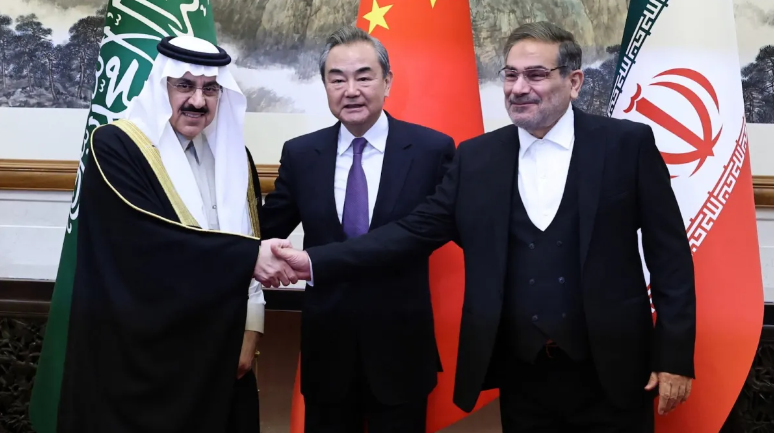
Last March, the peace agreement between Saudi Arabia and Iran was carried out through the mediation of China. Beijing’s political and military presence in the Middle East was still a far-fetched speculation. Most analysts now agree, however, that China’s Middle East strategy aims for more than just energy exchanges. The question is, does the United States want to replace the United States in the Middle East? Will Beijing deploy troops in the Middle East to show their strength?
These two questions are logical and interrelated. As Beijing’s involvement in the economy, politics and diplomacy of the Middle East grows, Beijing’s ability to change the internal and intra-regional dynamics of countries is increasing. There is a superpower rivalry between the US and China. Considering America’s role in the region and Washington’s military presence, China’s strategy will indeed pique your curiosity.
China has national security interests in ensuring the security of the oil-rich Middle East. China imports more than 53 percent of its crude oil from the Middle East. Beijing will never want this energy market to be destroyed. Given China’s dependence on the Middle East for petroleum products and the risk of military conflict due to this sensitivity, it would seem logical to want to deploy Chinese troops in the region.
Is this idea logical though correct? probably not
Two areas that could impact energy supply in Beijing are energy production and transportation. In the case of the first, internal instability or interstate conflict in a country may pose the greatest threat. There are a few more diverse aspects to the topic of fuel transportation. These include regional instability, disruption of sea connectivity. In this case, the worst case could be a naval blockade.
As long as China’s dependence on Middle Eastern energy remains, such threats to oil production and transportation will remain a reality.
However, China’s leaders are pragmatic and understand the difference between skepticism and sensitivity. Beijing is skeptical about whether that market will be eroded by overdependence on Middle Eastern energy, but it does not need to be sensitive. This is because China needs the Middle East as a customer just as China needs the Middle East for oil.
In addition, China will not be the only one affected if there is a crisis in oil production and transportation. Its impact will fall on oil importing countries from Asia to Europe. Be it the US or China, no one would want such a situation to arise.
Taiwan is the biggest point of contention between the US and China. If military hostilities between the two countries erupt over this dispute, Washington could use its military to disrupt China’s energy supply chain, reducing China’s ability to operate in the Taiwan Strait. Perhaps China will want to give itself more time to prepare for such an event. Security measures to ensure the transport of fuel from the Middle East will need to be tightened.
But China’s sensitivity can be viewed from two different perspectives. First, a US naval blockade of energy exports may be less of a concern for China than a possible war between the superpowers. Events such as problems in the world energy market are certainly significant, but it is not right to think that a war between the United States and China will start based on it.
Second, even if Beijing loses its major oil market in the Middle East to the US naval blockade, China’s military presence in the region will not be cost-effective. The US military budget in the Middle East is now 70 billion dollars a year. On the other hand, China’s overall defense budget in 2023 is $224 billion. If Beijing were to match Washington’s military spending in the Middle East, it would have to spend one-third of its total defense budget.
China’s primary and most significant strategic threat is now the Western Pacific. That is the focus of China’s military attention now.
In addition, China has now chosen a way to lower its energy security risk. Beijing has brokered a peace deal between arch-enemy Iran and Saudi Arabia.
Through this, China has made itself a major player in the future economic structure of the Middle East. Beijing is doing the work to create mutual dependence between energy producing countries and China’s 1.4 billion people.
Undoubtedly, this tool is much more effective than the use of military force.
Chinese strategists have mixed feelings about China’s growing presence in the Middle East. Many believe that Washington is aware that China is becoming a security watchdog in the Middle East. Others believe that Beijing needs to be expelled from the Middle East.
Regardless of what the US thinks or what is acceptable to them, China will involve itself in the Middle East just like them. Even if there is never a large-scale Chinese military deployment in the Middle East, China’s political, economic and diplomatic presence in the countries will still be considered important.